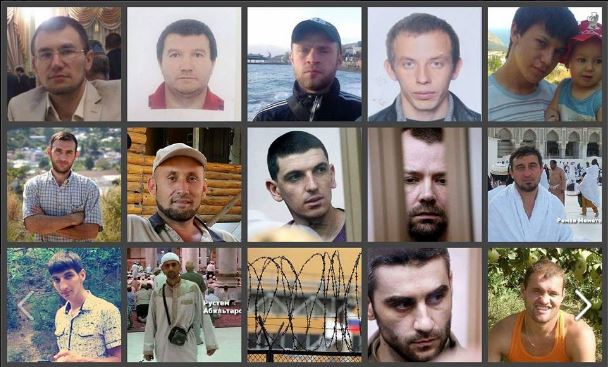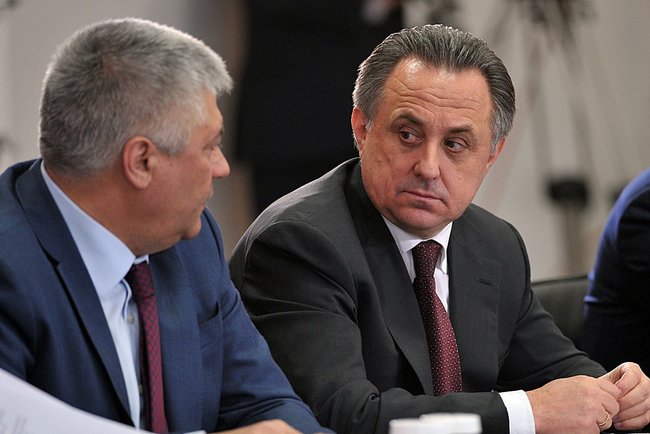Many of the apparent contradictions in Russia today, Lilia Shevtsova says, can be explained by the fact that Vladimir Putin and his regime have entered what Argentinian political scientist Guilliermo O’Donnell once called “the impotence of omnipotence,” the gradual loss of power by leaders who remain in office for a long time.

with News.Online.UA, the Russian analyst says that “the unlimited power” that the Kremlin leader had enjoyed has now degenerated in the ways O’Donnell found was characteristic of South American dictators who were in office for extended periods.
In the case of ever more issues, Shevtsova continues, Putin can’t solve problems on his own but is forced to meet with others as in the case of wage arrears or recognize that he cannot do anything – such as fighting corruption – even though it threatens his power vertical. To do so, he would have to open up of the system that would threaten it and him in other ways.
Moreover, despite Crimea, Putin does not have the mass support he did. While his approval ratings remain high although lower than they were, ever more Russians say that they are not happy with what is going on in their country. “And Putin himself does not believe he has mass support – otherwise why would he create his own National Guard?”
But more is at work, the Russian commentator says, that just the psychology of the leader. There is “the logic of one-man rule at the stage of exhaustion, which pushes the leader to this or that set of actions. At a certain stage,” she continues, “authoritarian leaders become hostages of their own regimes.”
Some of Shevtsova’s most interesting comments concern Ukraine.
She argues that “any Russian leader, functioning in a system of autocracy could not be indifferent to the flight of Ukraine” away from Moscow, given that from his point of view this represents “an amputation of an important element of Russian statehood.”
But more than that, the Ukrainian Maidan demonstrated and confirmed something else: Russia in contrast to Ukraine is “still not a post-empire but one incompletely dissolved and frozen at that stage.”
“Of course,” Shevtsova argues, “there was the hope that the West would ‘swallow’ the annexation of Crimea and Russian aggression in the Donbas,” adding that in her view, “had Putin known what would happen” in terms of Ukrainian resistance and Western opposition, he would not have gone beyond Crimea.
But he did, and that too has contributed to the process by which “Putin’s power has been transformed into powerlessness.”
In this new situation, which she uses Zygmund Bauman’s term “interregnum” to describe, the Russian elite is trying to find a new balance between restraining the West and cooperating with it. The Russian political class does not want to give up its access to the West, but it also does not wan to give up the means it has to produce its wealth at home.
The West too is seeking a new balance, Shevtsova suggests, because it fears what would happen if it isolated a nuclear power and consequently, there will be contacts between them. But – and this is critically important – “this does not mean a return to the old model of business as usual.”
Ukraine is a central factor in this search on both sides, and the results of what Shevtsova calls its “dramatic experiment” – to “escape the post-Soviet model without having the chance for rapid membership in the EU and NATO
” – is likely to determine far more than just its position in the world. Ukraine’s “fate may be one of the most serious challenges for the 21st century.”
Ukraine has a chance to make the transition to a modern democracy if Western leverage in Ukraine remains strong, while Russia has much less of a chance in this regard because those in charge in Russia do not face similar Western influence and know that moving in a Western direction will compromise their sources of wealth and power.
“The Russian elite has become European at the level of consumption, but in order to preserve their incomes and consequently their power,” Shevtsova says, “they must isolate ordinary Russians from Europe” and from European values. Thus, “the Kremlin will struggle with Western values inside Russia even as it tries to achieve compromises with European business and elites.”
Whether Putin and the Russian elite around him can do so in their now weakened position remains to be seen.
Related:
- Seven reasons why Putin's war in Ukraine is a turning point in Russian and world history
- 15-point checklist of Putin regime's propaganda techniques
- Putin will never leave Ukraine alone -- Russian analyst
- Putin, Savchenko and Ukraine
- Ukrainian military intelligence identifies top Putin's generals conducting war in Ukraine
- Putin's crony in Ukraine proposes new "compromise" plan ahead of Minsk talks
- Putin's plan to federalize Ukraine



